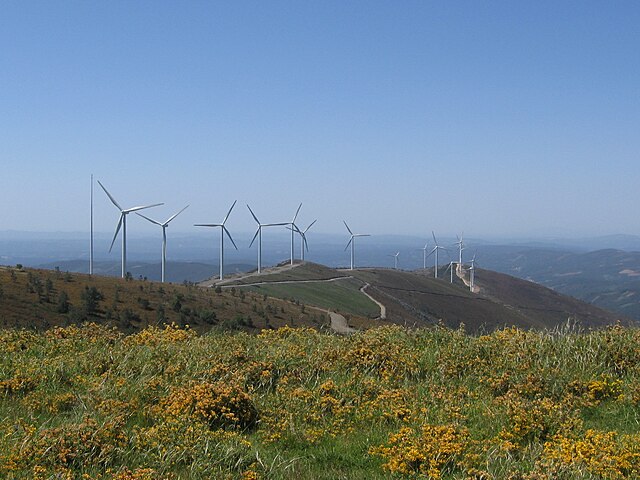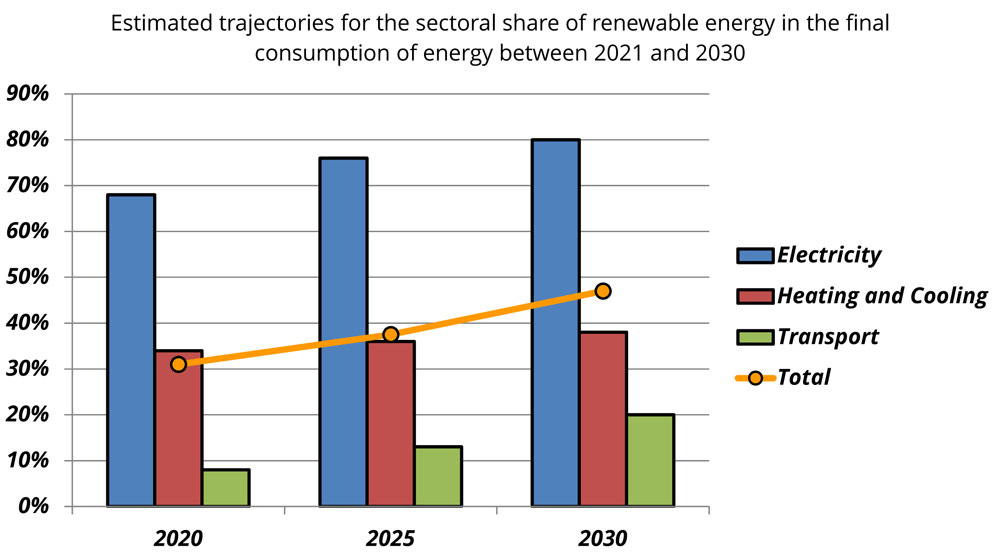 Portugal had a very exciting week in November 2023. The country set not one, but three climate records.
Portugal had a very exciting week in November 2023. The country set not one, but three climate records.
Due to favorable weather conditions, the country was able to run on clean energy for six consecutive days. From October 31st to November 6th, the country produced enough clean energy to not only sustain itself but even sell the excess to Spain.
So what exactly are these records, and how do they reflect the country’s 2050 carbon-neutral goal? Let’s find out!
Portugal – A Trendsetter
The week following October 31st, Portugal set three records. The first was a period of 149 hours in which renewable energy exceeded the total energy demand from industries and homes. Essentially, Portugal ran on only wind, solar, and hydropower for a whole week!
The second record was set by the country going 131 hours (almost 5 days) without using fossil fuels for any of its electricity needs (including pumps for hydropower generation etc). This record almost tripled the previous record of 56 hours set in 2021. Portugal set their third climate record by consistently producing more energy than was consumed for 95 hours without using fossil fuels, and even exporting some to Spain. All three of these records were set in the same week!
 How did Portugal achieve this feat? The country uses diverse renewable resources (wind farms, hydro, solar farms) and blends them to meet its needs. This is important as weather conditions change. The country is looking to expand to more offshore wind farms, installing more solar capacity, and upgrading its onshore wind farms in the future to get more power from favorable locations.
How did Portugal achieve this feat? The country uses diverse renewable resources (wind farms, hydro, solar farms) and blends them to meet its needs. This is important as weather conditions change. The country is looking to expand to more offshore wind farms, installing more solar capacity, and upgrading its onshore wind farms in the future to get more power from favorable locations.
Portugal hopes to derive 85% of its electricity from renewable sources by 2030. Currently, 56% of their energy is renewable. In 2022, the last coal plant in the country was shut down. Now, imported fossil fuels supplement the other energy sources to power the country. They’re also attempting to electrify the transportation system to reduce oil demand.
How Are Countries Attempting to Decarbonize?
A climate change treaty called the Paris Agreement - enforced on November 4, 2016, is legally binding on the international stage. It’s a roadmap for what goals countries need to meet in order to be carbon neutral by 2050. The Agreement states that carbon emissions must peak by 2025 to keep global warming from exceeding 1.5℃ (about 2.7℉). After the peak, emissions must decline by 43% before 2030.
Though Portugal was the first to commit to carbon neutrality by 2050, many other countries also derive more than half of their energy from renewable sources.
In 2022, 98.5% of Norway’s energy was green. In Brazil, it was 89.2%, and New Zealand produced 86.6%. The United States has been slow to adopt green energy, though some states are doing better than others. Texas, California, and Iowa are the top three producers of renewable energy.
Portugal’s recent records set a wonderful precedent for their ability to sustain themselves on green energy. Hopefully, by 2050, citizens all over the world will have more sustainable options for energy, food, transportation, and everything in between!
Sources: Grist, Euronews, Portugal.gov, UNFCC, Motley Fool








